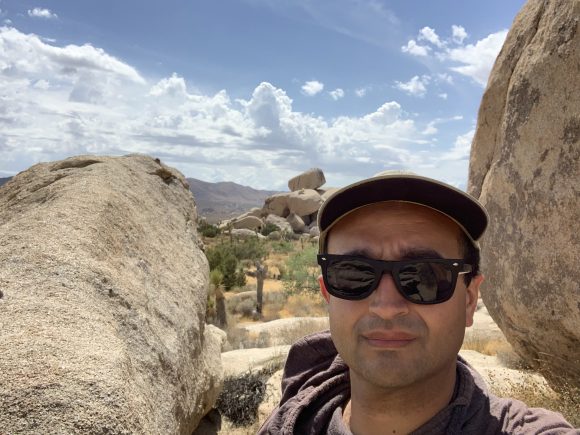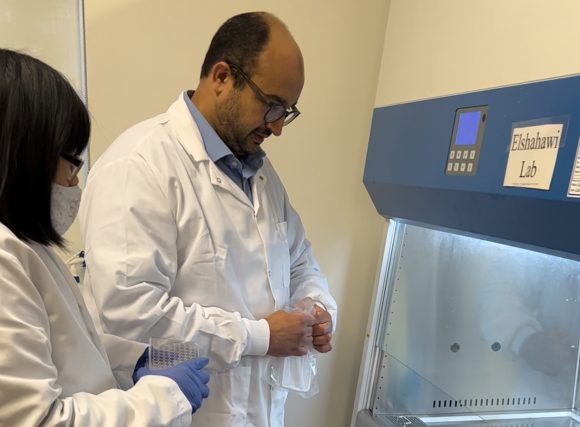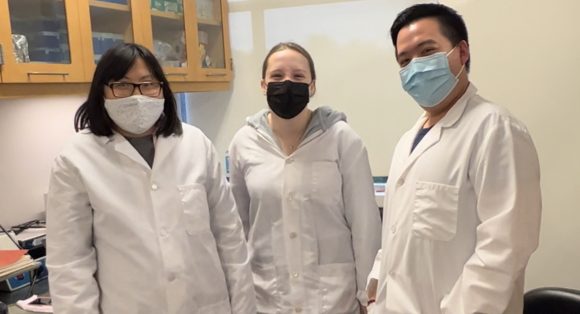R03 Grant Recipient Dr. Sherif Elshahawi
December 7, 2022
Dr. Sherif Elshahawi has been declared a recipient of the R03 grant from NIH (National Institutes of Health) to continue his work inventing antibiotics that inhibit resistant bacteria to “last resort” antibiotics. Dr. Elshahawi received $138,000 from the NIAID (Award # 1R03AI168826-01A1) for his proposal titled “Mechanisms and In Vivo Activity of a Next Generation Daptomycin Antibiotic.” 11/22-10/24. Dr. Elshahawi will serve as a PI, and Dr. Rachita Sumbria and Dr. Innokentiy “Inno” Maslennikov are co-investigators.
The goal of this NIH fund is to study the mechanism of action and resistance potential of our daptomycin derivatives and study their effect in animal models.
 Dr. Elshahawi, pictured in the field.
Dr. Elshahawi, pictured in the field.
In general, when a patient becomes sick, antibiotics are used to abdicate bacteria and treat the infection. Daptomycin is a “last resort” antibiotic used for treatments for potentially fatal infections. However, there has been a rise in the number of microbes that are resistant to antibiotics, meaning that antibiotics are becoming less effective in diminishing infection-causing bacteria. This decline in effective treatments has caused the Centers for Disease Control and the World Health Organization to issue warnings suggesting that if this issue is left unaddressed, the world may face a problem with similar intensity to the COVID-19 pandemic (ex., CDC 1, 2; WHO 1).
Using a chemo-enzymatic method, Dr. Elshahawi’s lab structurally modified daptomycin with synthetic chemistry to create derivatives that are superior in activity to the initial chemical structure that makes daptomycin. The derivatives created in the lab were more potent than daptomycin itself and were found to have killed resistant bacteria that daptomycin could not.
Dr. Elshahawi is one of many Chapman Pharmacy researchers that advocate for students to have hands-on, active learning in the labs. and guides students in research methods in his labs. This grant will help fund training for Pharm.D. students, graduates, and even undergraduates and expose them to different techniques in life sciences while studying the mechanism of action in animal models. Dr. Elshahawi coaches a student in running experiments in his lab.
Dr. Elshahawi coaches a student in running experiments in his lab.
Student researchers, pictured left to right: Diem Nguyen, Ashley Alexander, and Alan Thammavongsa.
Relevant Literature:
- Mupparapu N, Lin Y-H, Kim TH, Elshahawi SI. Chemistry. 2021 Feb 24;27(12):4176-4182. https://pubmed.ncbi.nlm.nih.gov/33244806/
- Mupparapu N, Brewster L, Ostrom KF, Elshahawi SI. Chemistry. 2022 Apr 6;28(20):e202104614. https://pubmed.ncbi.nlm.nih.gov/35178791/


